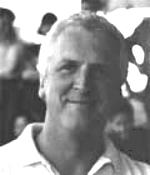Attraction of the RO Theory: The Possibility of Making a Difference
- Got invited over to Australia to CRA. First thing I did was help design the training programs for the general managers. It was quite a challenge to move from sort of the health services in the UK through to Australian mining companies.
Speaker A I'm Ian McDonald and I've been involved in this work well, this work my contact with Elliot went back to when I was an undergraduate at Brunell, 1968, graduated in 72 and then joined the Ins...
Transcript of the presentation video
NOTE: This transcript of the video was created by AI to enable Google's crawlers to search the video content. It may be expected to be only 96% accurate.
Speaker A I'm Ian McDonald and I've been involved in this work well, this work my contact with Elliot went back to when I was an undergraduate at Brunell, 1968, graduated in 72 and then joined the Institute of Organization Social Studies in 73, late 73. Joined actually at the same time as Jillian Stamp and worked there with people who are known in this field rafe Robotom and David Billis, Gillian Stamp, Stephen Sang, other colleagues. And the thing that sort of drew me to the work really was the possibility of making a difference and there being some change that you could bring about in organizations. And what I liked about the core of the theory was the transdiscipline nature of it. It wasn't really sociology. My background is psychology, interest in psychoanalysis, which was the original link with Elliot, but it was putting these things together and not being boxed, I guess, by a discipline or a particular worldview that put you in. Are you dealing with individuals or society or large groups or are you an organizational psychologist in the traditional sense? So it seemed to be something different from all of those things. And that offered an opportunity, whilst doing research, whilst being in an academic context, to really do something, and so started working in the hospitals health service unit, but then gradually developed an interest in mental hospitals, in particular people with severe learning difficulties. And I then went on to design a process which it was called the Chart of Initiative and Independence. But it was a process which looked at how relationships of whether people were ready to move out of the hospitals and what level of care they might need. And the radical thing about that was that it was a levels approach in the sense not the same levels as levels of work but it was about the nature of dependence towards independence in a relationship where the relationship was the entity rather than an IQ test or a skills based test which all the others had been before that. And that was pretty successful. And the development of consequential services for community care were of interest and worked pretty well. But I think what probably more interest to some people about the results was looking at this across a different range of organizations and having worked in hospitals and having worked in the health service and in education and social services to have an opportunity, which I did through the work that Elliot and Sir Roderick Carnegie had been doing. Got invited over to Australia to CRA. And that was interesting. The process of why I was asked to do that was interesting for me anyway, because, well, for a start, I didn't even know I was being assessed to see if I was going to have some work there. So I was just working at Brunel and Elliot asked me to meet some Australians, and in fact, I first of all met Lee Clifford, who then eventually became CEO of cranter and then Terry Palmer and Jack Brady came over. Well, they were looking, as I found out later, and why I was asked to do that. They were looking for somebody who, in their words, could translate this material and teach it or coach it in a way that people could understand. And that the dialogue with Elliot and Sir Roderick Carnegie was at a level that they felt if you teach this in development programs, people will be put off by it. And seeing as I'd worked across a wide range of client groups then I was quite happy to have a go. So the first thing I did was actually help design the training programs for the general managers and managers throughout CRA and teach a lot of those modules with a range of other people as well. And that was a task I enjoyed because I actually do like a simplifying things. That's a natural tendency, not being able to manage a lot of complexity to simplify things, but also to be able to translate into a meaningful way that somebody else will listen to or be able to hear. And it was quite a challenge to move from sort of the health services in the UK through to Australian mining companies. Anyway, that was part of the restructuring program and within that the organizational development side, which was designing and running the training programs, being involved in, that quite effective and extraordinary. I think it's also one of the things I learned there. I had never seen so many resources being put into a program in an organization. I mean, Sir Roderick Carnegie, I think, to this day is probably unique in terms of his commitment to the whole program and recognising what it might take for this to become part of the way that CRA did their business and treated people. So that was pretty impressive.
Major organizations and consulting firms that provide Requisite Organization-based services





